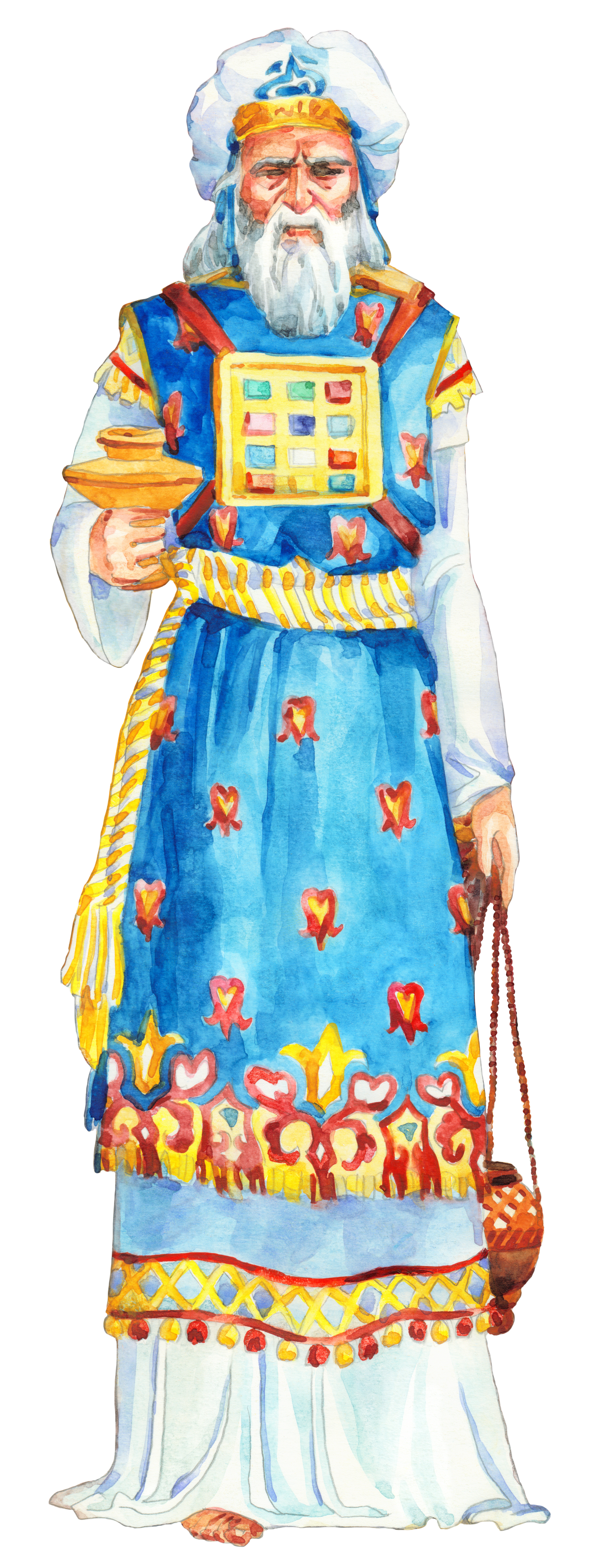Tag Archives: Gospel
Lessons from a Tree on How to Abide in Yeshua, Who Is Our Tree of Life
Now let’s combine the concept of abiding, humans being like trees and Yeshua as it relates to his teaching about abiding in him in John 15.
I am the true vine, and my Father is the husbandman. 2 Every branch in me that beareth not fruit he taketh away: and every branch that beareth fruit, he purgeth it, that it may bring forth more fruit. 3 Now ye are clean through the word which I have spoken unto you. 4 Abide1 in me, and I in you. As the branch cannot bear fruit of itself, except it abide2 in the vine; no more can ye, except ye abide3 in me. 5 I am the vine, ye are the branches: He that abideth4 in me, and I in him, the same bringeth forth much fruit: for without me ye can do nothing. 6 If a man abide not in me, he is cast forth as a branch, and is withered; and men gather them, and cast them into the fire, and they are burned. 7 If ye abide in me5, and my words abide in you, ye shall ask what ye will, and it shall be done unto you. 8 Herein is my Father glorified, that ye bear much fruit; so shall ye be my disciples. 9 As the Father hath loved me, so have I loved you: continue ye in my love. 10 If ye keep my commandments, ye shall abide6 in my love; even as I have kept my Father’s commandments, and abide7 in his love. (John 15:1–10; the superscripted numbers indicate the word abide occurs seven times in the passage as it relates to a righteous person abiding in Yeshua.)
Yeshua relates the concept of abiding in him to a plant or a tree with branches in John 15:1–10. What are the spiritual implications of abiding in Yeshua and how do we abide in him?
The term abide is found nine times in this passage. Seven of the those nine times are in reference to abiding in Yeshua or his Father. Seven is the biblical number of completion or perfection. When we abide in Yeshua and his Father, then we’re made perfect or complete in all areas of our life: spiritually, physically, mentally and emotionally. The result is that we will bear much spiritual fruit for him; namely, we will produce the fruit of the Spirit in our lives (Gal 5:22–23).
Let’s explore the spiritual dynamics of abiding in Yeshua that enable us to be Continue reading
New Video: The Torah Roots of Biblical Grace
The Gospel Message in the Priestly Consecration Ritual
The Seven Steps to Consecrating a Priest &
the Seven Steps to Salvation (from Exodus 28–29 ; Lev 8)
Now let’s note the seven steps of consecrating the priests and compare them with the steps a believer goes through to become a “chosen generation, a royal priesthood, a set-apart nation, a peculiar people that you should show forth the praises of him who has called you out of darkness into his marvelous light” (1 Pet 2:9). Notice how these seven steps relate to the steps a new believer takes in his conversion process and how they relate to one’s spiritual journey from outside the mishkan where the altar of the red heifer is located representing the cross of Yeshua, then into the door of the tabernacle (i.e. Yeshua who is the door), to the altar of sacrifice (i.e. a prophetic picture of communion) to the bronze laver (i.e. immersion for the remission of sins and being washed in the water of the Word of YHVH), into the set-apart place where the Ruach (Spirit of Elohim) is and onward and upward spiritually into intimate relationship with the Father. In Exodus chapters 28 and 29 we find the following:
Step One: They were taken from among the children of Israel ( Exod 28:1). This prefigures divine election (see John 15:16). YHVH calls or chooses each person. Yeshua called his disciples. They did not call or choose him, but they had to respond to that call.
Step Two: They were brought into the door of the tabernacle (Exod 29:4). The door of the tabernacle is Messiah Yeshua who is the door to the sheepfold. No man comes to the Father except through Yeshua (John 10:1–5, 7, 9) The door is four colors which speak of the person and work of Yeshua: blue, scarlet, white and purple. It also speaks of the four Gospels, which is the door to understanding the Person and work of Yeshua.
Step Three: They were washed (Exod 29:4). Upon accepting the work and Person of Yeshua one must be immersed for the remission of sins (Acts 2:28) to identify spiritually with the death, burial and resurrection of Yeshua (Acts 2:38; Rom 6:3–14), and the washing of the water of the Word (Eph 5:26).
Step Four: They were clothed in their official garments (Exod 29:4–9). The redeemed believer is to put on the robes of righteousness (note Gal 3:27, “For as many of you as have been baptized into Messiah have put on Messiah”). Paul talks about fruits of righteousness through Yeshua in Philippians 1:1. Righteousness is Torah obedience (Ps 119:172) and is a mark of the end time believers/saints (Rev 12:17 and 14:12) and of the bride of Messiah (Rev 19:8).
Step Five: They laid their hands on the head of the animals which were sacrificed (Exod 29:10–26, 32–33). The blood of an animal was shed and sprinkled on Aaron and his sons and matzah (unleavened bread) was waved and burnt and they ate the flesh of the ram and the matzah.
Each born-again believer has to take personal responsibility for his own sins. The sacrifice of Yeshua, the Lamb of Elohim, at the cross must become personal to each person (see Heb 10:19; 13:12; 1 Pet 1:2; 1 John 1:17 and Rev 1:5). Each believer has his own personal relationship with Yeshua. Each must eat the flesh and drink the blood of Yeshua individually (John 6:35–58). Communion is a personal and individual matter.
Step Six: They were anointed with oil (Exod 29:21). Each person must receive the Set-Apart Spirit (Ruach) of Elohim (see Acts 8:17; 19:6).
Step Seven: They are sanctified or set-apart for a special, divine purpose (Exod 29:44). Only after going through these steps is one set-apart unto YHVH as a set-apart priesthood doing the set-apart work of YHVH (see Rom 15:16; 1 Cor 1:2; 6:11; Heb 10:10,14; 1 Pet 2:9).
Only on the basis of following YHVH’s steps, as outlined above, can one have fellowship with the Father. And what was the result of this consecration process? Relationship with the Father! Read Exodus 29:44–46 below,
And I will sanctify the tabernacle of the congregation, and the altar: I will sanctify also both Aaron and his sons, to minister to me in the priest’s office. And I will dwell among the children of Israel, and will be their Elohim. And they shall know that I am YHVH their Elohim, that brought them forth out of the land of Egypt, that I may dwell among them: I am YHVH their Elohim. (emphasis added)
This is all accomplished through Yeshua living in us spiritually. Yeshua is the Chief Cornerstone of our faith (Eph 2:20). He is the end result or goal of the Torah (Rom 10:4). He is the Author and the Finisher of our Faith, the Beginning and the End, the Aleph and Tav (Alpha and Omega) of everything.
To whom coming, as unto a living stone, disallowed indeed of men, but chosen of Elohim, and precious, you also, as lively stones, are built up a spiritual house, a set-apart priesthood, to offer up spiritual sacrifices, acceptable to Elohim by Yeshua the Messiah. Wherefore also it is contained in the Scripture, “Behold, I lay in Tzion a chief corner stone, elect, precious, and he that believes on him shall not be confounded. Unto you therefore which believe he is precious, but unto them which be disobedient, the stone which the builders disallowed, the same is made the head of the corner, and a stone of stumbling, and a rock of offence, even to them which stumble at the word, being disobedient: whereunto also they were appointed. But you are a chosen generation, a royal priesthood, a holy nation, a peculiar people; that you should shew forth the praises of him who has called you out of darkness into his marvelous light, which in time past were not a people, but are now the people of Elohim, which had not obtained mercy, but now have obtained mercy. (1 Pet 2:4–10)
Our faith in Yeshua stays alive and vibrant because of the sacrifices of devotion and praise we offer up daily, morning and night. We are called to do the same work the priests of old did, but in a spiritual or fuller sense.
To believe Yeashua, You have to first believe Moses
John 5:46–47, Believed Moses. These two verses at the end of chapter five can easily be overlooked, but their implications are huge.
Quite simply, Yeshua is saying that those who don’t believe the writings of Moses (i.e. the Torah) won’t believe the words of Yeshua who himself upheld the Torah and taught its validity in the lives of his disciples.
This then begs the following question: Where does this leave all those who claim to be followers of Yeshua, but who believe that the law of Moses was abrogated? It’s hard to be absolutely black and white on this matter, since only YHVH can judge the heart condition of each individual, for undoubtedly many who claim the law was “done away with” still adhere to many of the law’s tenets (e.g., you shall not steal, murder, lie, commit adultery, worship idols and you shall honor your parents, etc.) and are thus obedient to the law to one degree or another. However, we can safely say that it’s a matter of degrees. To the degree that we don’t believe the words of Moses, we don’t believe the words of Yeshua who was a proponent (and, in reality, as the Word of Elohim, the Originator) of the Torah-law of Moses.
John makes a similar statement in his first epistle from which we can deduce the following: To the degree we don’t keep the (Torah) commandments of Elohim, we won’t know him; that is to say, conversely, if we keep his commandments which are a reflection of his character, will and heart, we will be able to know what pleases him, which in turn will determine the depth of our spiritual relationship with him (1 John 2:4).
In reality, these should be simple concepts to grasp and put into practice in one’s spiritual walk, yet, sadly, most religious leaders have misled Christians to believe anything and everything but the simple truth of the Bible and instead of concocted convoluted man-made doctrines and unbiblical traditions by which they have made the word of Elohim of no effect (Mark 7:13). It’s time for Elohim’s people to come out of the Babylonian church system with its webbed mixture of truth along with half-truths and outright lies (Rev 18:4).
Moreover, Yeshua is saying here that Moses’ prophecies about the coming Messiah formed the foundation for all the subsequent biblical messianic prophecies and the eventual coming of Yeshua the Messiah. If one couldn’t believe these prophecies of Moses, how would they recognize, much less believe in, Yeshua when he did come?
The Gospel Message in the Tabernacle of Moses — The Courtyard
Salvation — What Is It and Do You Have It?
John 3:16, Everlasting life.
What is Salvation?
The dictionary defines the word salvation as “the deliverance from the power and effects of sin.” In a general sense, salvation is “preservation from harm, ruin or loss.” Relating the first definition, which is biblical in nature, to the second definition, which is generic in nature, we see that salvation is the deliverance or preservation from the power of sin, which causes harm, ruin or loss. Salvation and redemption are synonymous terms in biblical Hebraic thought. We will discuss the idea of redemption below.
So what is sin that it causes harm, ruin or loss, and what is being harmed or being lost such that we need deliverance? Very simply, Scripture (the Bible) defines sin as the violation of YHVH Elohim’s (the LORD God’s) Torah-laws (1 John 3:4). What is YHVH Elohim’s Torah-law? It is the instructions, precepts or teaching of YHVH as found in the first five books of the Bible, which can then be expanded to include the entire Bible or Word of YHVH. Man is commanded to live by every word found in Scripture (Deut 8:3; Matt 4:4). Man is to hear and do the Words of YHVH (Deut 6:4), place YHVH’s words in his heart (Deut 6:6), teach them to his children (Deut 6:7), and to make them the basis for all that he does and thinks (Deut 6:8). The words or laws of YHVH Elohim can be summed up as loving YHVH and loving one’s neighbor (Deut 6:5; Lev 19:18; Mark 12:30; John 14:15). The cornerstone of those laws is found in the well-known ten commandments as found in Exodus 20. They are…
- I am YHVH your Elohim.
- You shall have no other gods before me.
- You shall not take my name in vain.
- Remember the Sabbath day to keep it set-apart.
- Honor you father and mother.
- You shall not murder.
- You shall not commit adultery
- You shall not steal.
- You shall not lie.
- You shall not covet your that which belongs to your neighbor.
The first five statements constitute loving YHVH Elohim, while the last five constitute loving one’s fellow man. These ten statements are but the beginning of YHVH’s laws as outlined Continue reading




